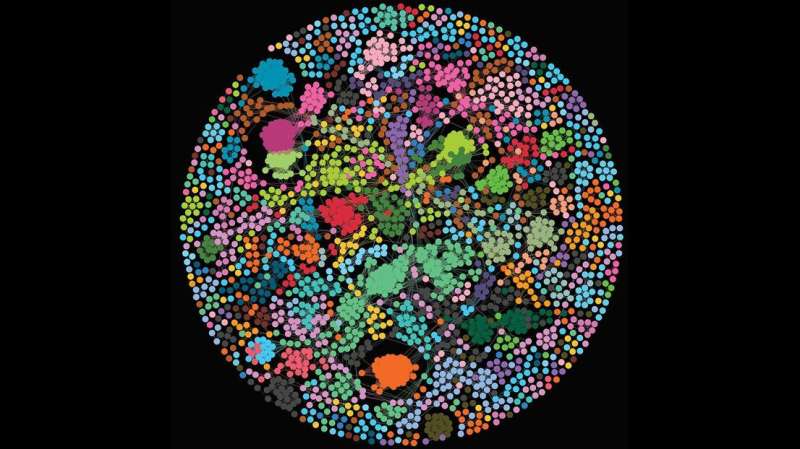Big data toolkit to mine the dark genome for precision medicine

EPFL researchers have developed Big Data tools for identifying new gene functions. The work identifies millions of connections between genes and their functions, and can facilitate the development of precision medicine.
Genes are the functional units of heredity, and the understanding of gene function is the major focus of biomedical research, serving as the basis of precision medicine. However, most research efforts have been devoted to only a small part of the genes, neglecting the larger "dark genome." This impedes our understanding of the underlying mechanisms of complex traits and diseases, which is necessary for the advancement of precision medicine.
"Most of the research are gene-oriented and largely influenced by our prior knowledge, therefore many potentially important genes are ignored," says Johan Auwerx, whose lab at EPFL led the study, along with colleagues from University of Lausanne and University of Tennessee, and EPFL professors Kristina Schoonjans and Stephan Morgenthaler.
In an article published in Genome Research, the scientists address the issue of the "dark genome" by developing novel approaches based on systems genetics. "Genes with similar functions tend to have similar expression patterns," explains first author Hao Li. "We used this feature to predict the function of unknown genes by learning from those of the known ones."
The researchers collected large-scale gene-expression datasets containing more than 300,000 samples from six different species. They then used these to develop a toolkit termed "GeneBridge" that can identify potential gene functions. The toolkit was then used by the team to identify hundreds of thousands of novel functions of genes, many of which have been verified by Auwerx's group as well as by other research groups.
"We have deposited GeneBridge and its seven billion data points on systems-genetics.org along with the already existing 300 million data points," says Auwerx. "This resource will undoubtedly improve our knowledge of the 'dark genome,' and promote the development of precision medicine."
More information: Hao Li et al. Identifying gene function and module connections by the integration of multispecies expression compendia, Genome Research (2019). DOI: 10.1101/gr.251983.119
Journal information: Genome Research
Provided by Ecole Polytechnique Federale de Lausanne



















